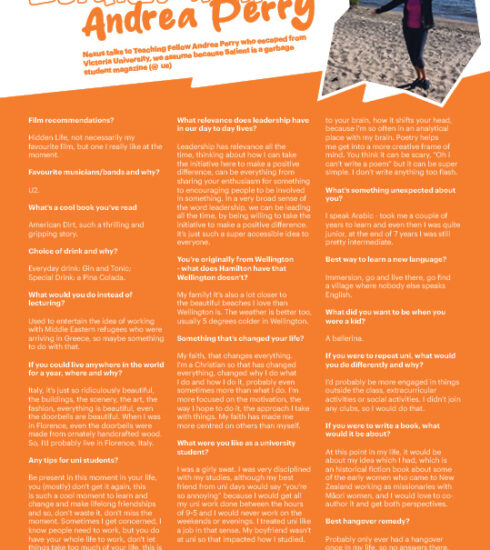Presidents’ Column – Issue 06

For nearly all students and at some point along their academic careers, they are faced with the daunting question of what to do next. Some have already been proactive, networking, building connections, and gaining experience through internships, leaving them confident about their next steps. Then there are those who, thanks to connections or family, already have a job lined up before they’ve even completed their studies. However, for the majority, the uncertainty of what to do and where to go hits all at once. This makes it all the more important to take time and carefully consider your options before making the decision. To help guide you, here are some key questions to ask when searching for a job:
First, ask about the culture. You could phrase it as “describe the company culture in 3-5 key words” and listen to what they say. The things they focus on can really provide insights into the organisation’s mindsets, priorities and make up of the organisation. A positive culture makes a supportive workplace and encourages progression. While a negative one will hinder you.
Second, it’s important to ask about flexibility. A flexible job allows you to better balance your work with personal interests, hobbies, health, and community involvement. Whether it’s pursuing sports, spending time with loved ones, or simply having time for yourself, flexibility can significantly improve your overall work-life balance, and in turn longevity.
Third, what is it that this role is seeking to do and what does success in the role look like? Especially in terms of elevation. The answer is very important for understanding what you will have to deal with individually in this role and if it is a fit for you. Make sure to break it down into other sub questions like “what would be expected of me in this role over the next 6 months?” and “what kind of challenges would someone in this role come across?”.
Questions are always good to ask, they will give you a good overview of the challenges and benefits within the role and give you a heads-up on how to prepare for them in the long run. Asking questions also shows attentiveness, interest and greater consideration on your part. Employers actually love when prospective employees have questions to ask or want to know more. Ultimately, this approach will help you make a decision that supports both your immediate career ambitions and long-term happiness.




